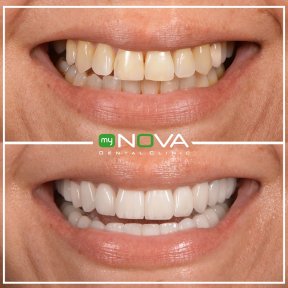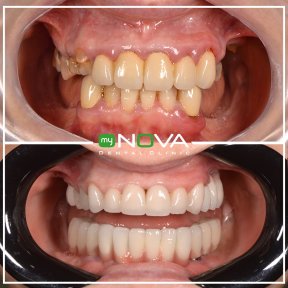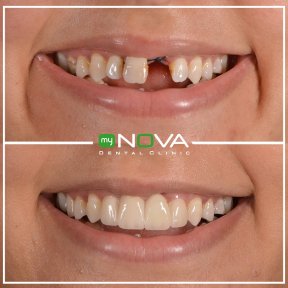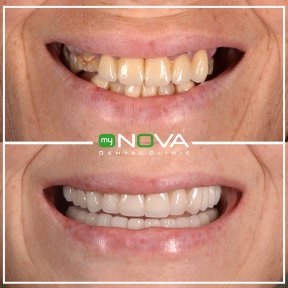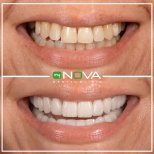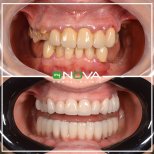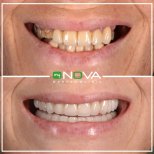A Dra. Erisa Olkun, com 17 anos de experiência odontológica e mais de 900 procedimentos realizados, lidera a equipe da My Nova Kusadasi Dental Clinic. A clínica é especializada em pacotes abrangentes de limpeza dentária que geralmente incluem destartarização, exames de raio-X e planos de tratamento personalizados. Estão disponíveis serviços multilíngues em inglês, turco, albanês e italiano. A clínica mantém uma taxa de satisfação de 99% entre os seus pacientes internacionais.
